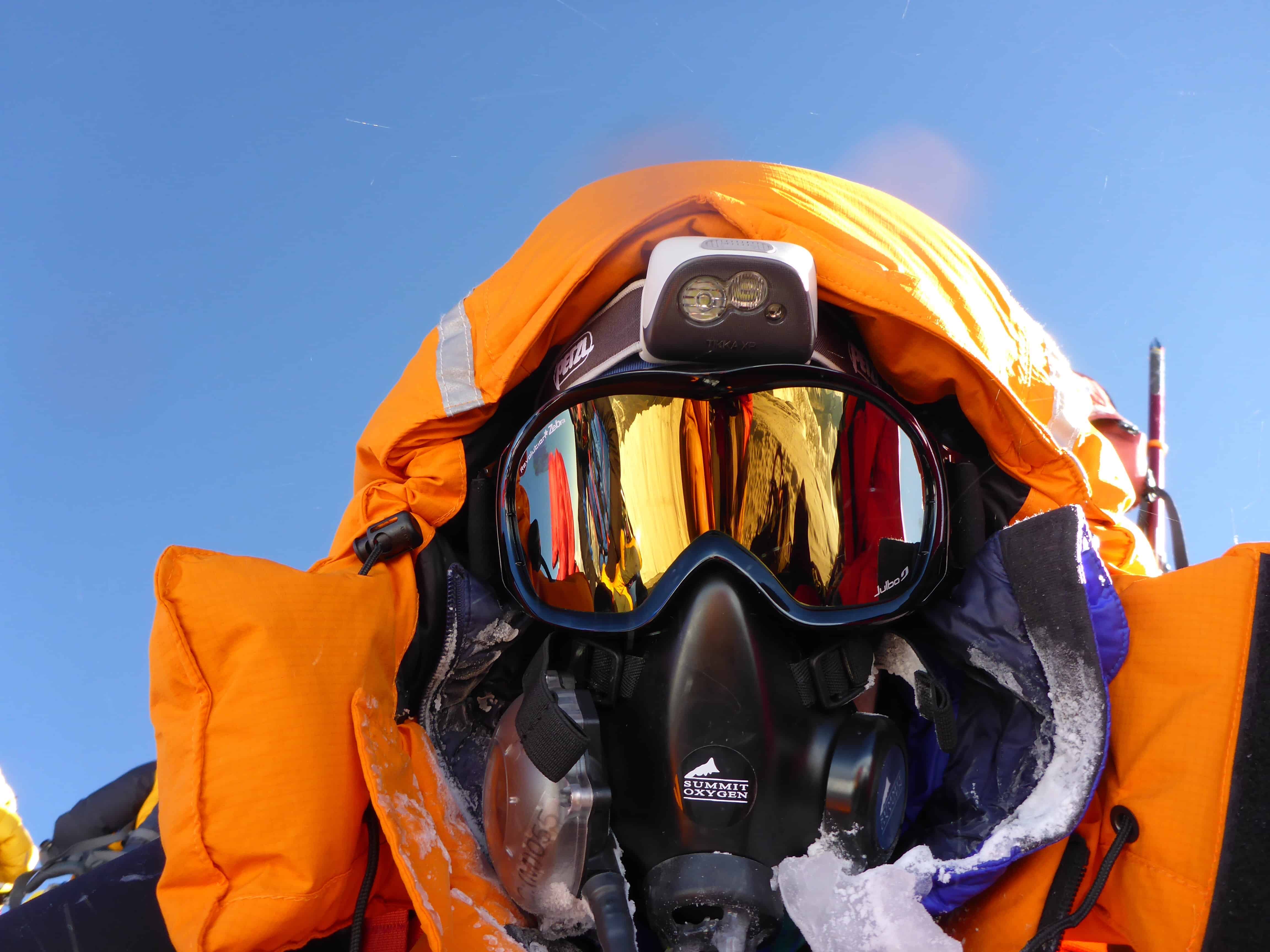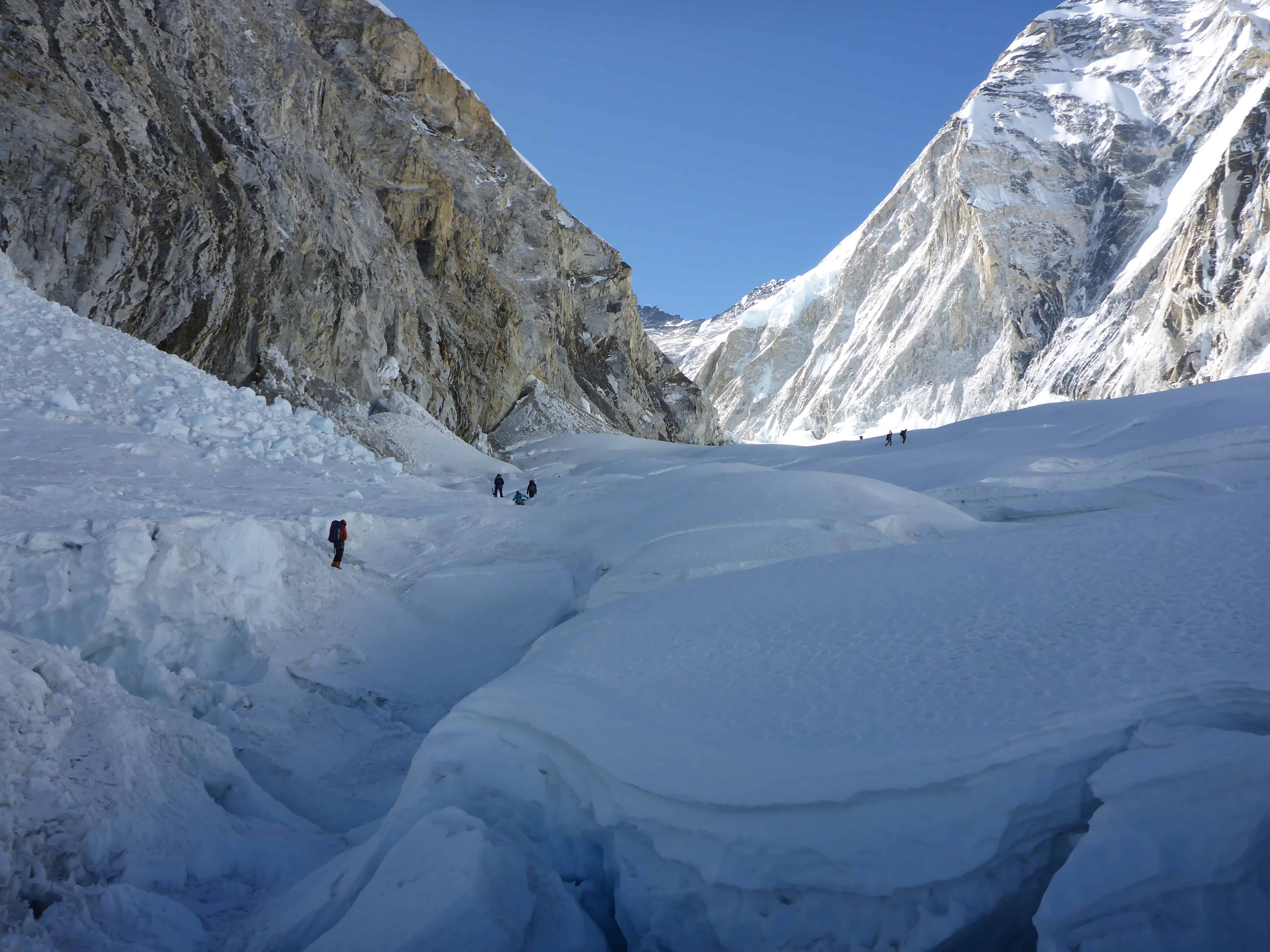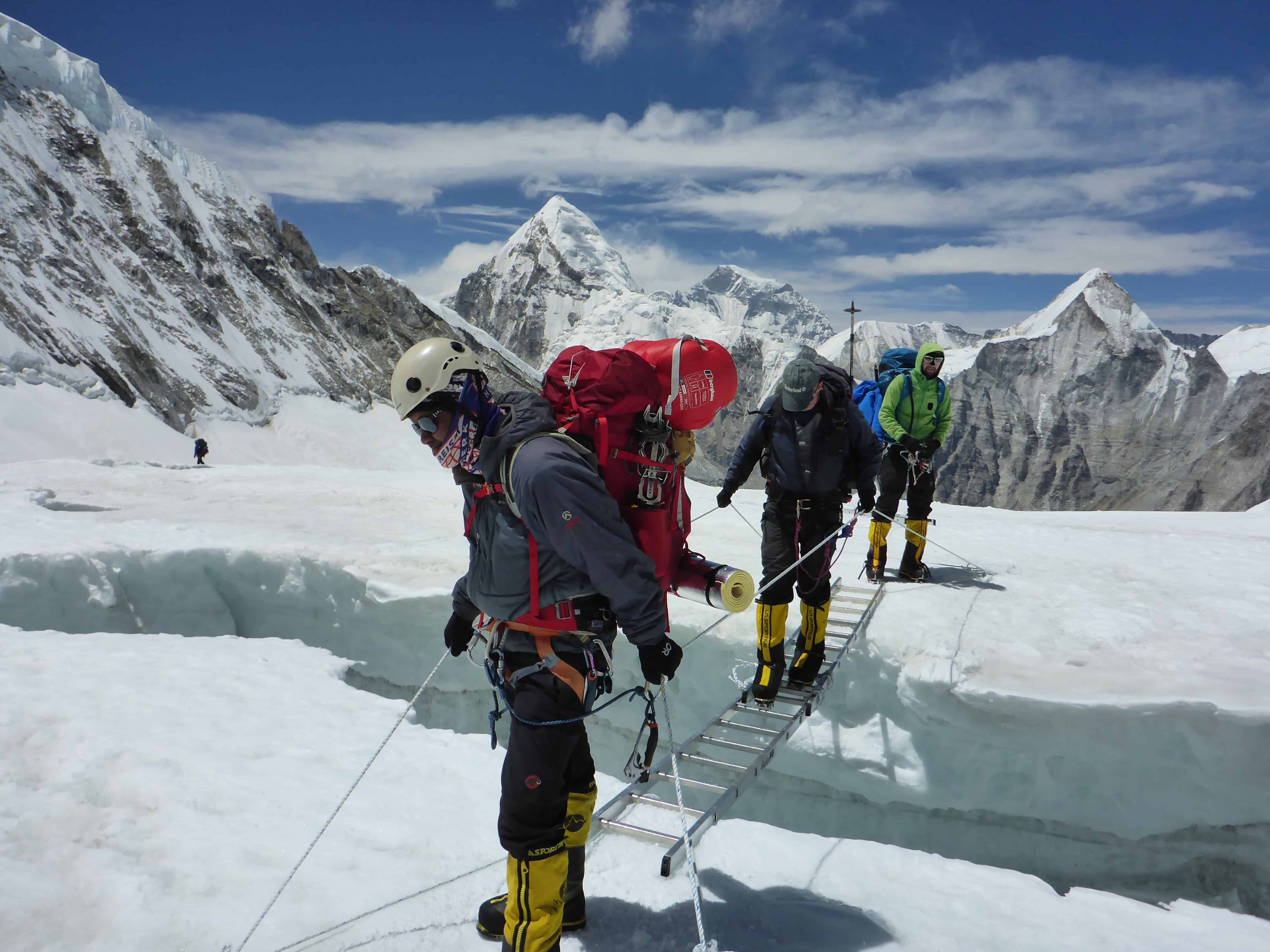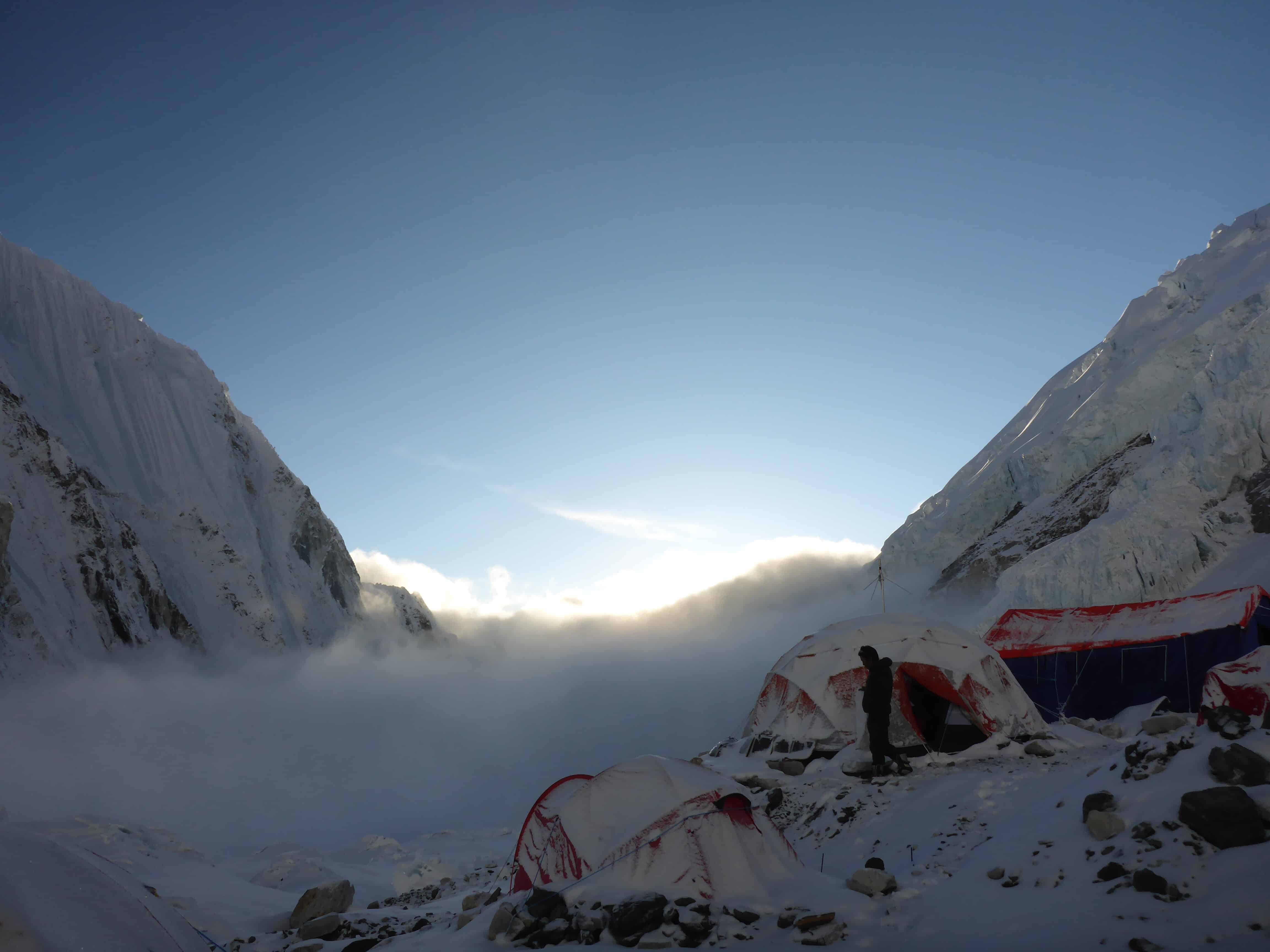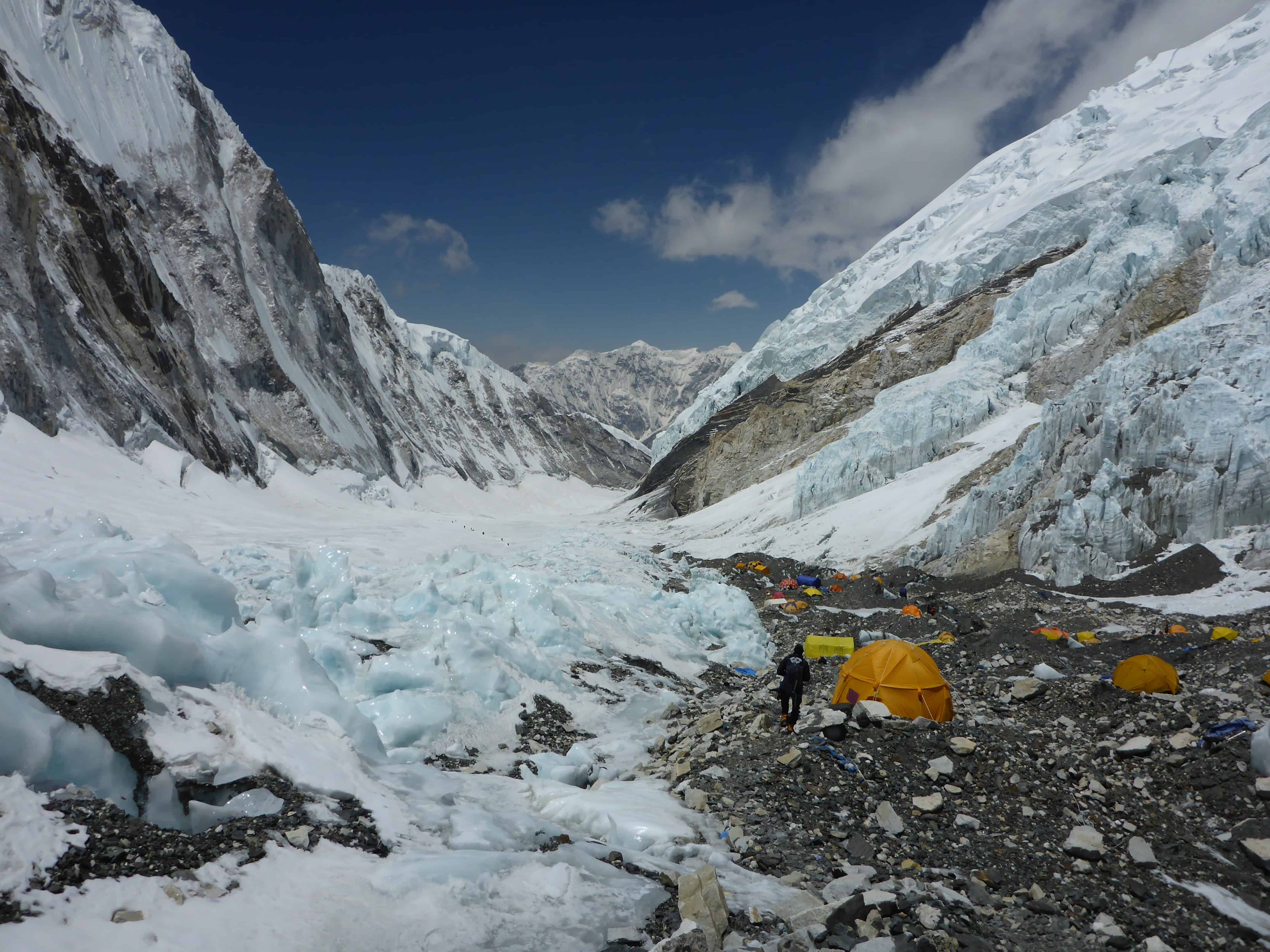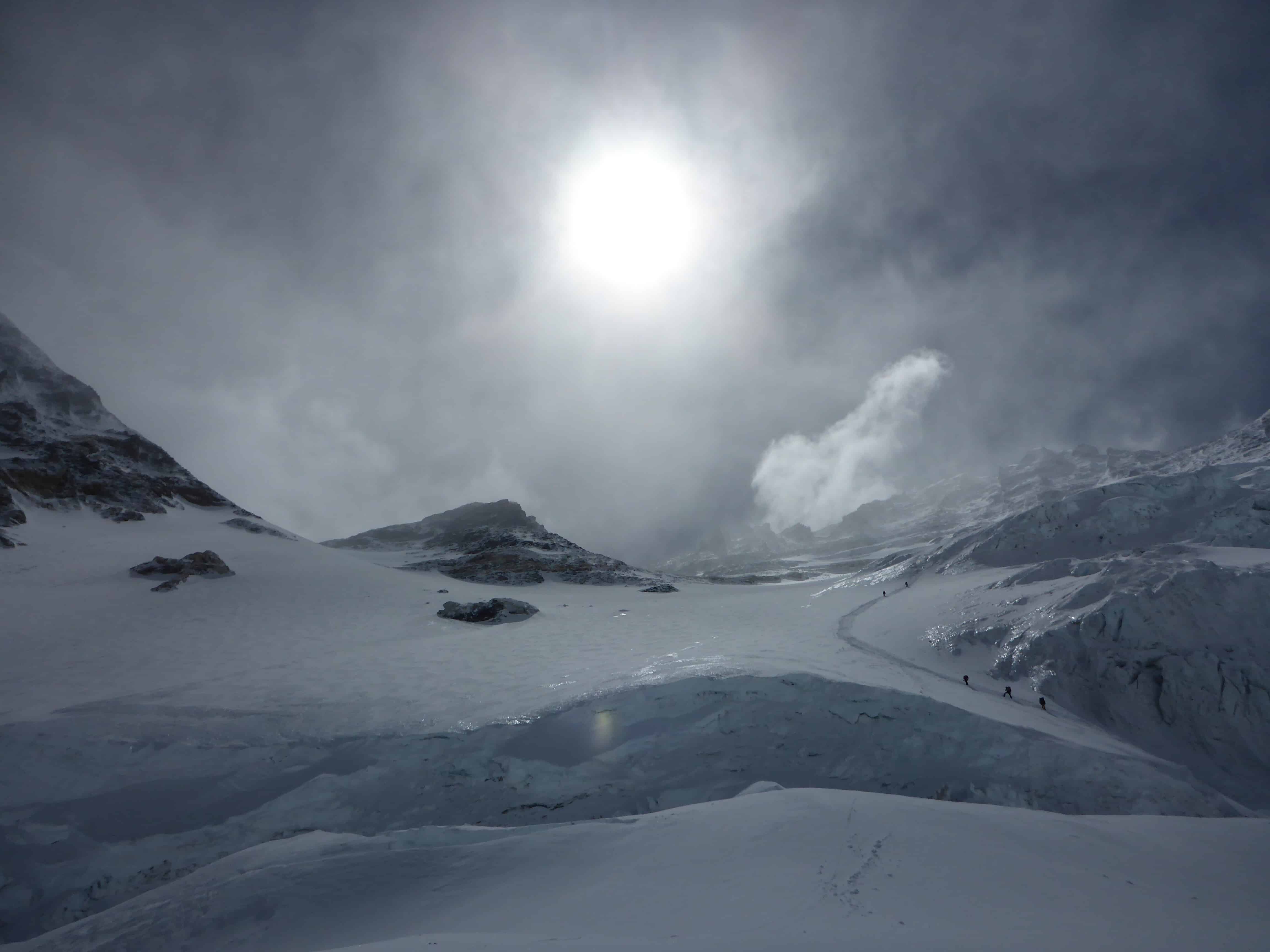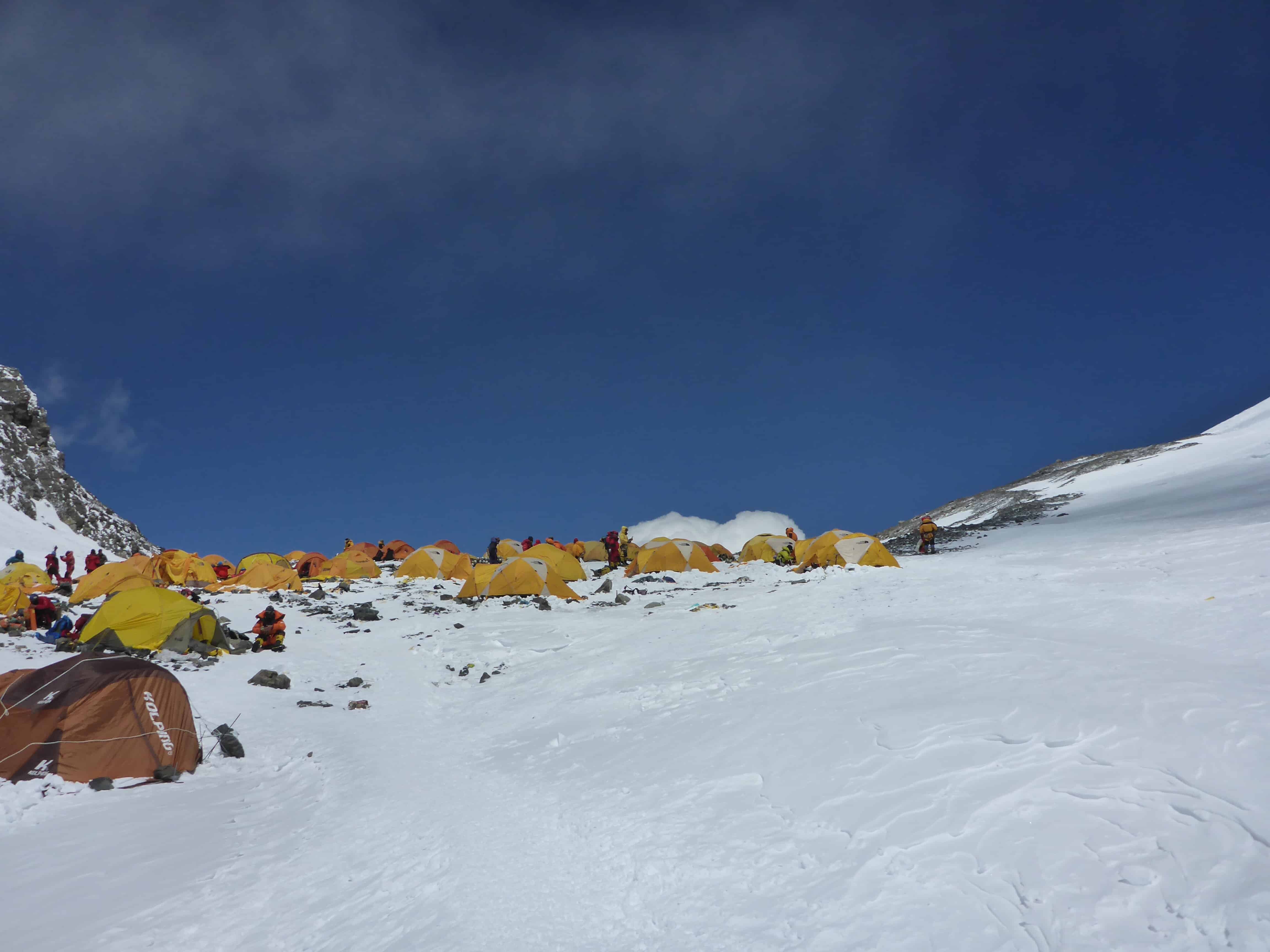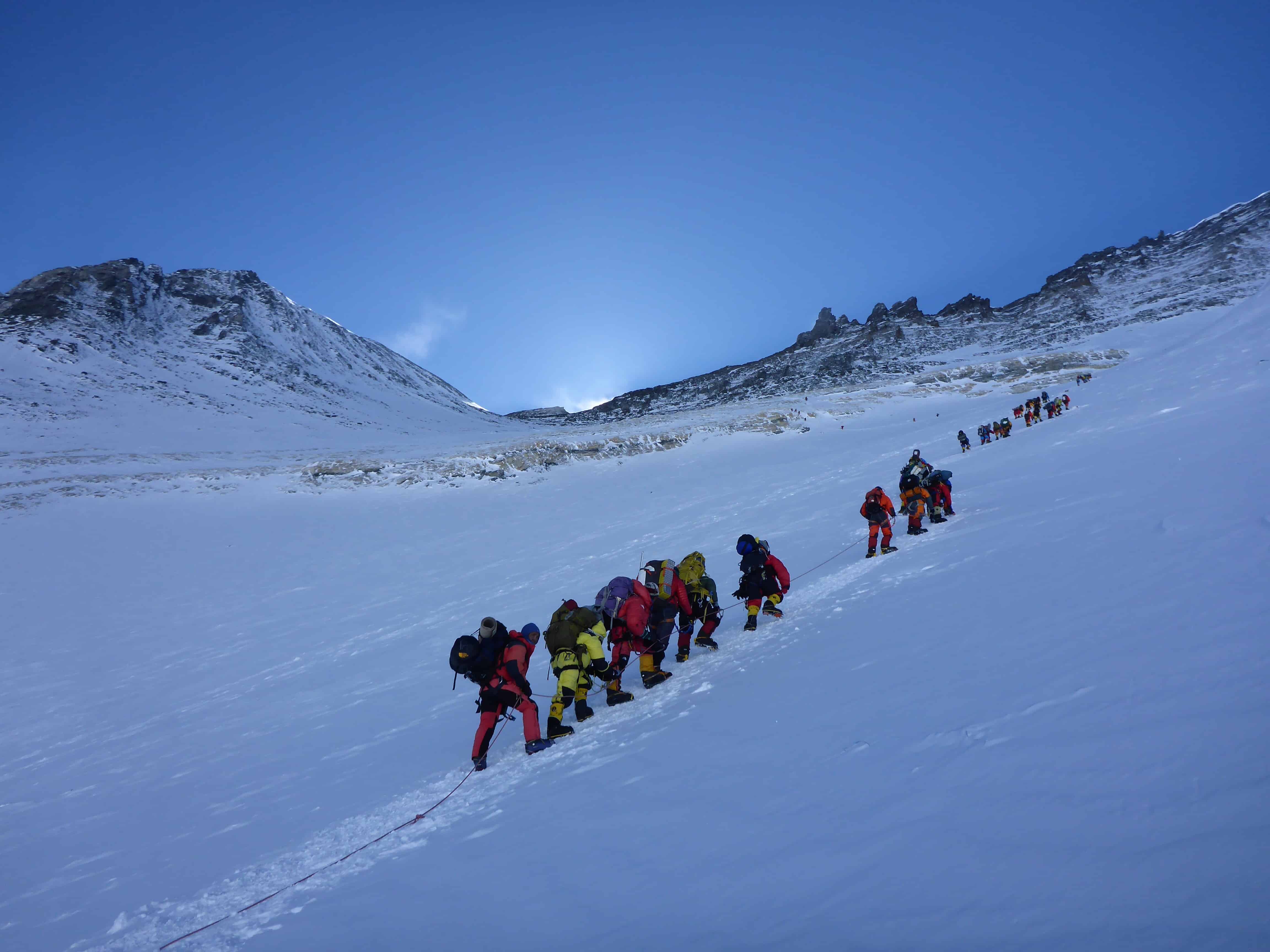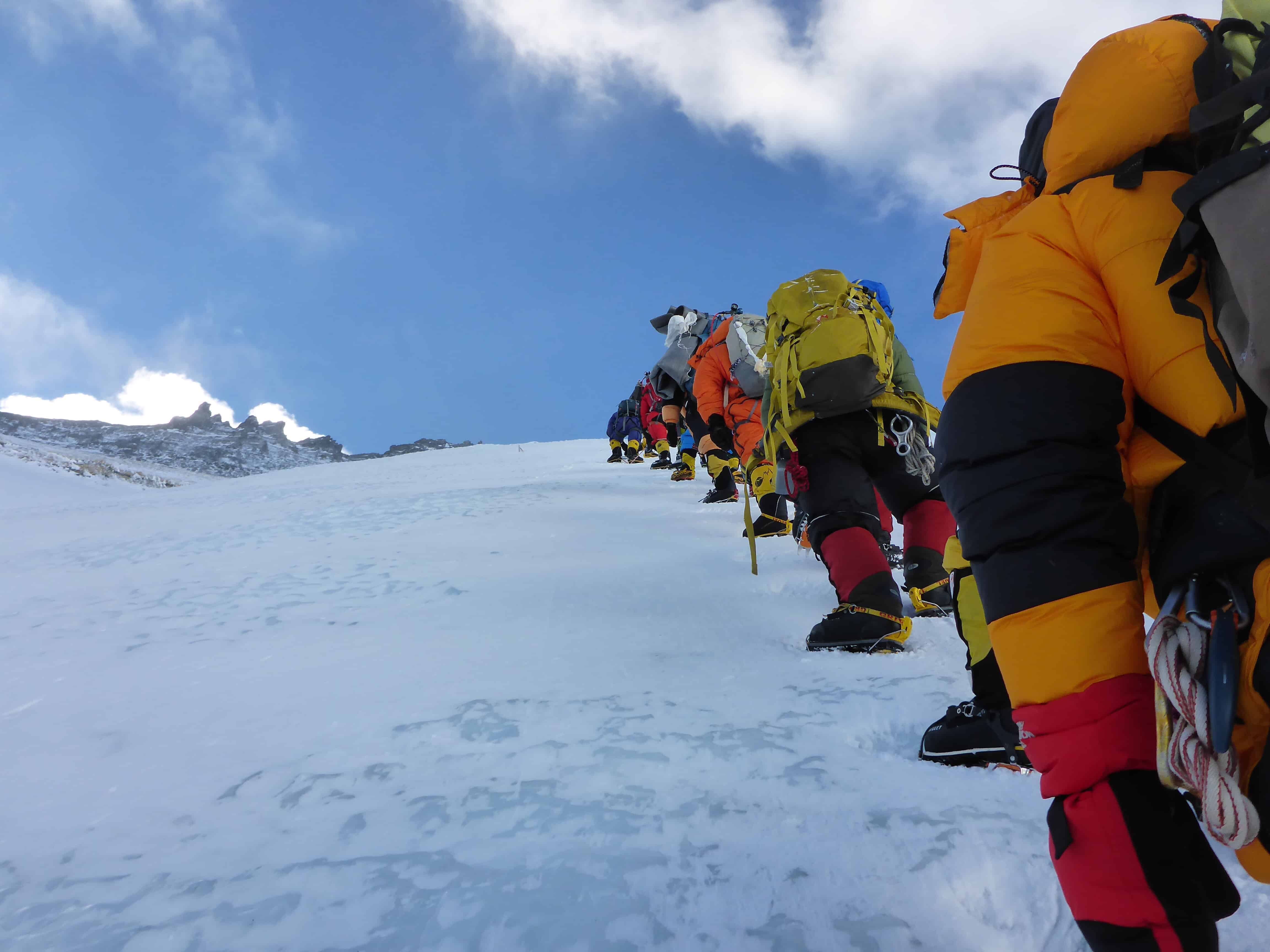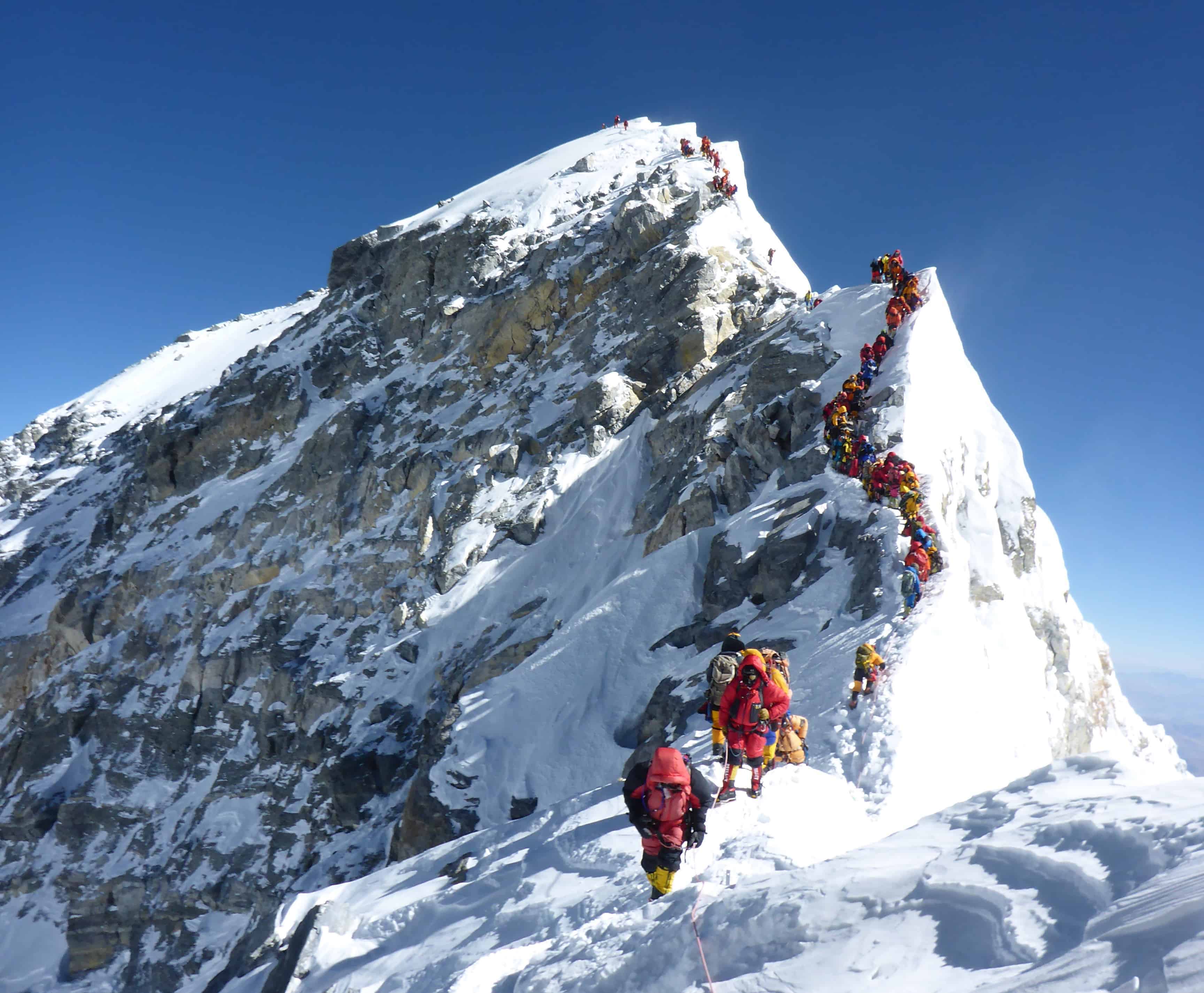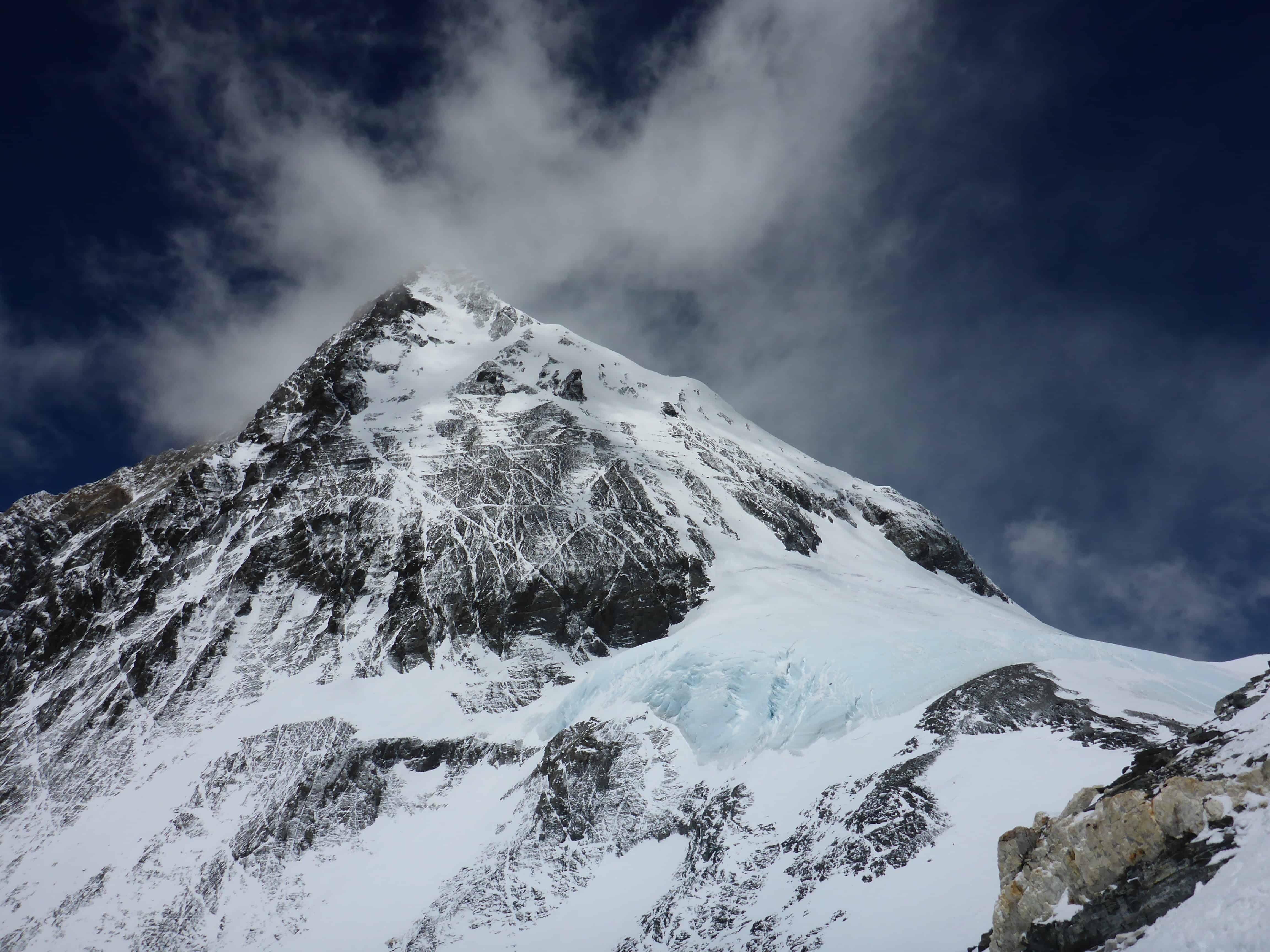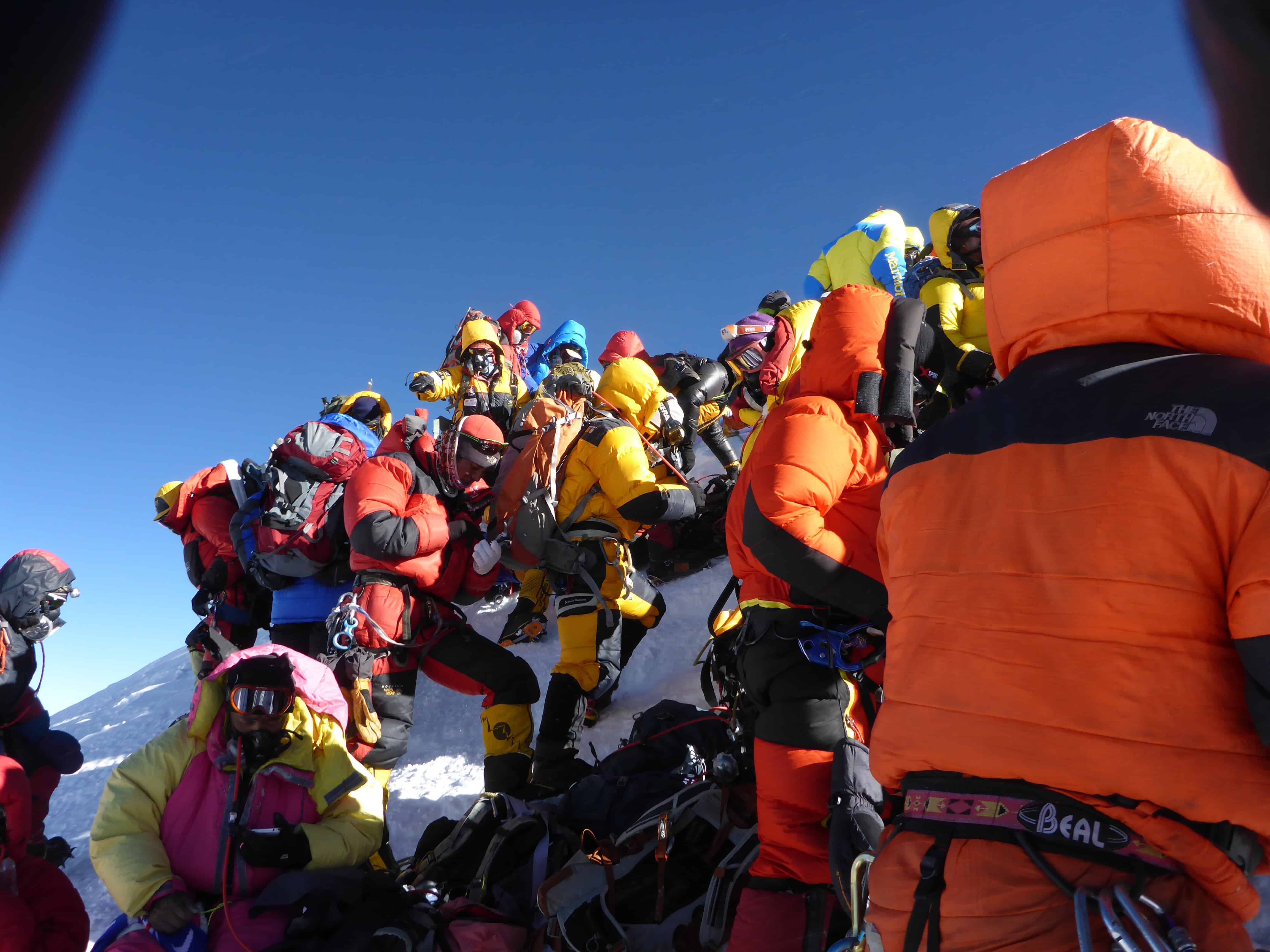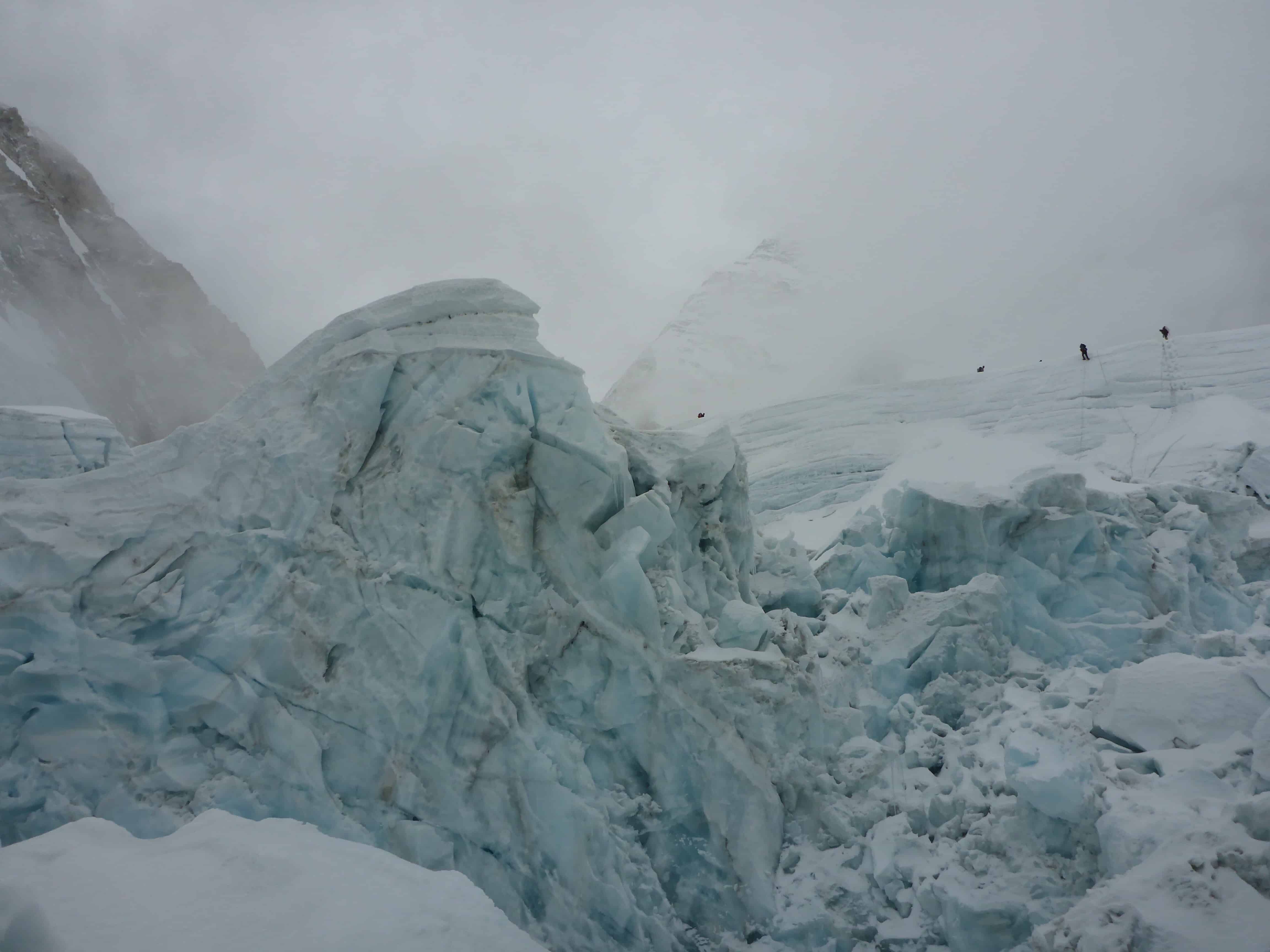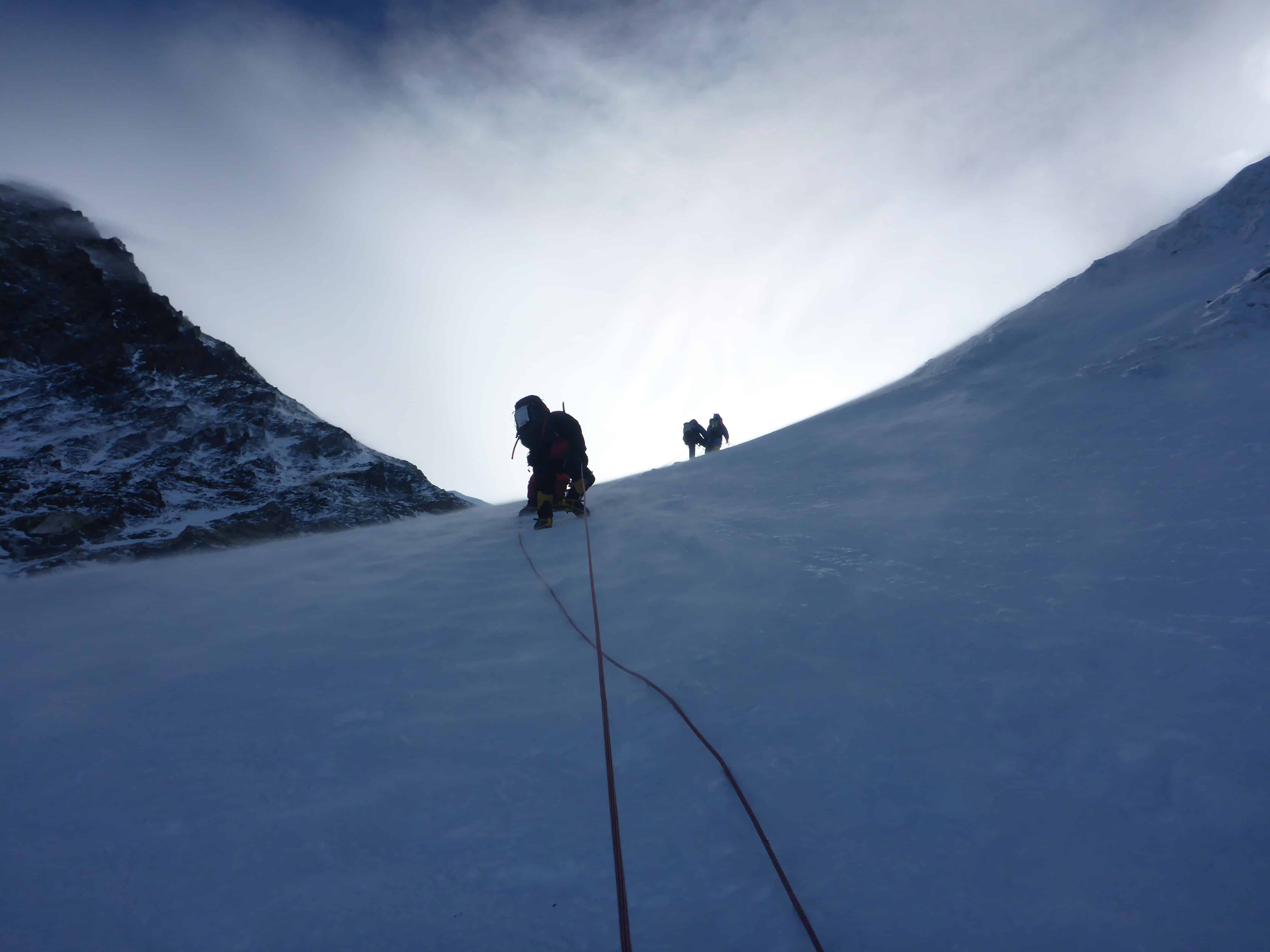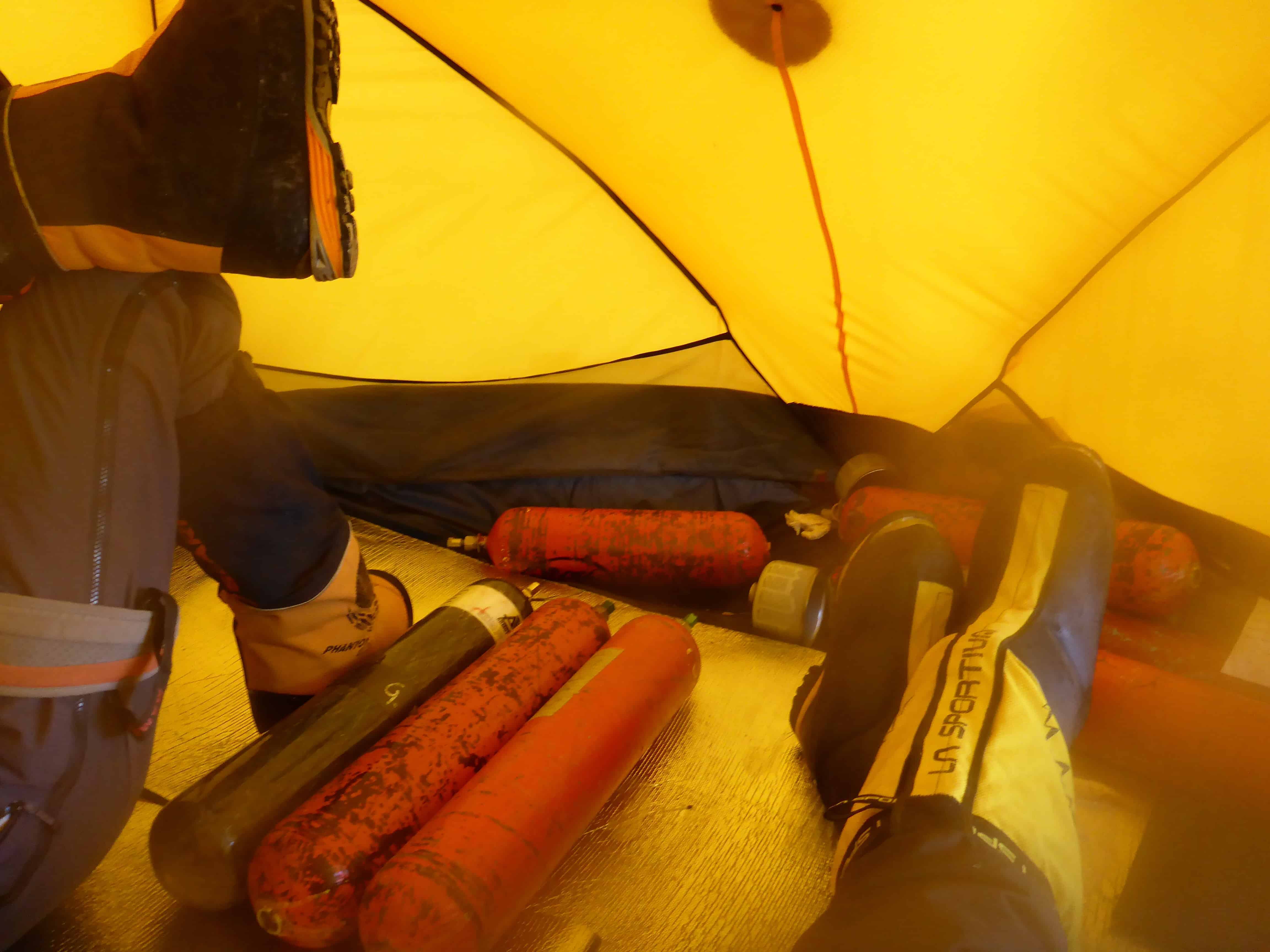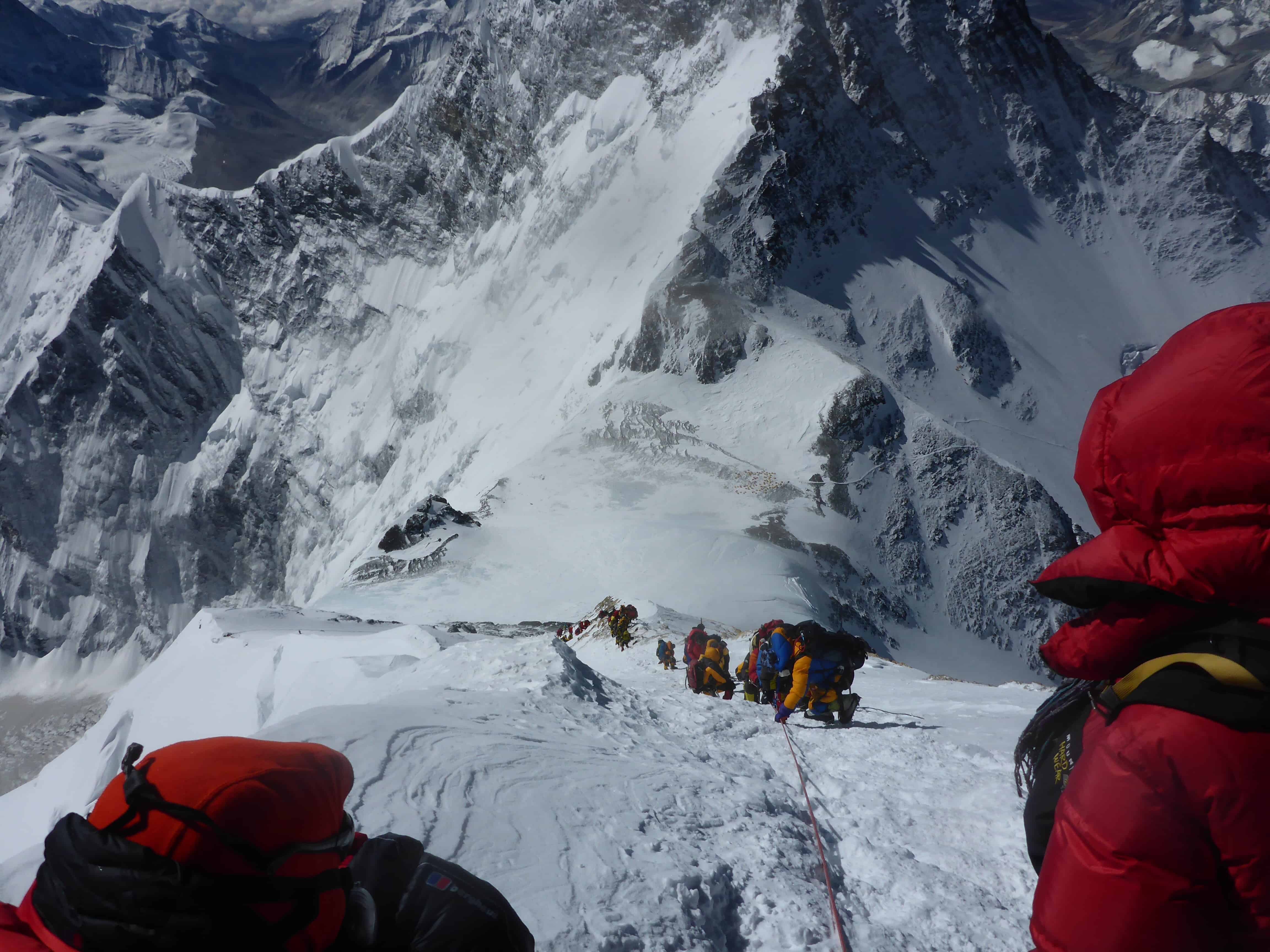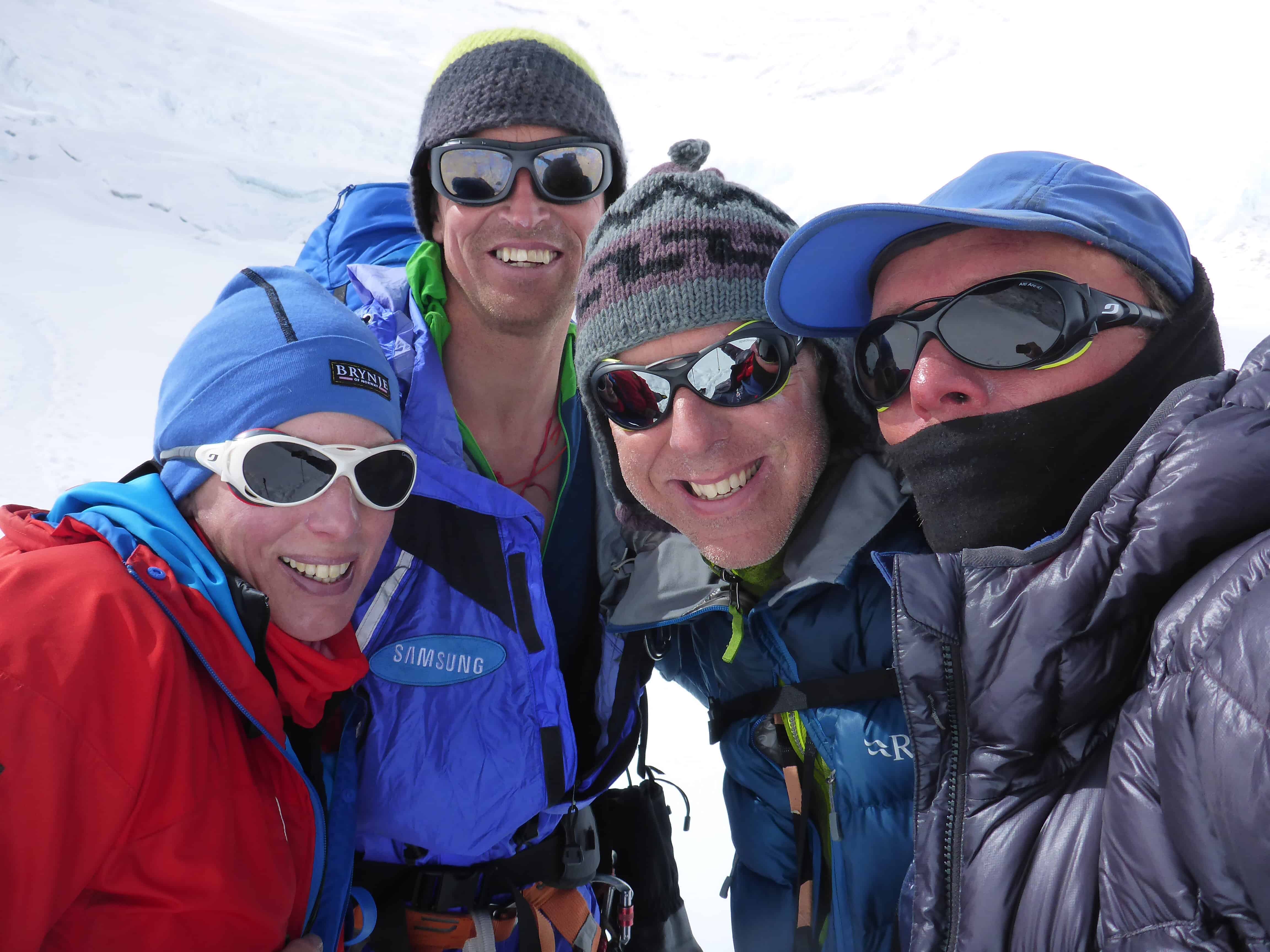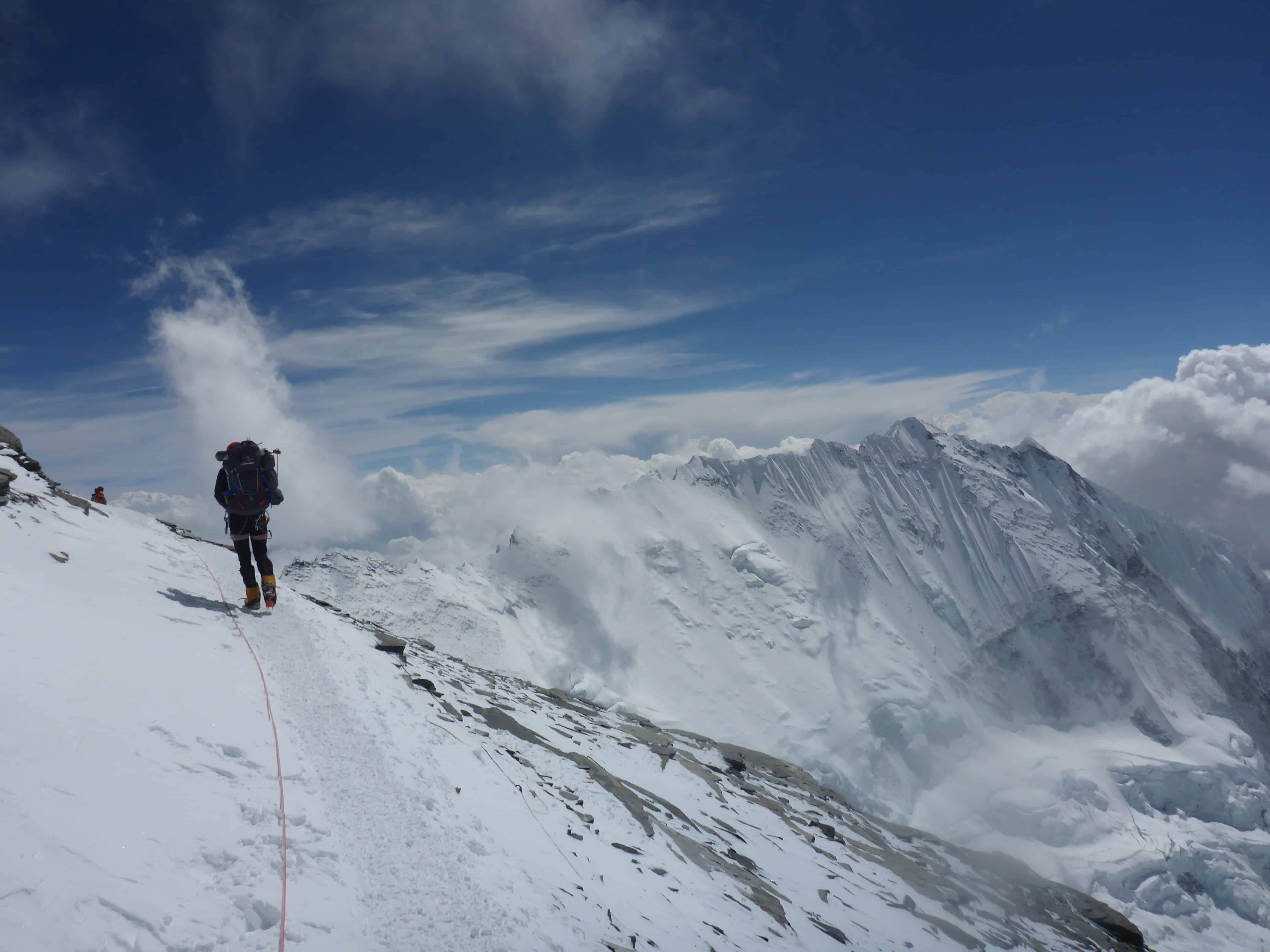Jo Bradshaw is an Expedition Leader and Outdoor Instructor for 360 Expeditions, Discover Adventure and Fresh Air Learning Company as well as instructing and assessing Duke of Edinburgh’s Award expedition groups. She has led expeditions all over the world including Peru, Argentina, Chile, Tanzania, Nepal, India, China, Cuba, Morocco, Borneo, Vietnam plus a variety of European countries. Jo stood on the top of the world on 19 May 2016 at 6.45am, we find out what it was like…
What was your motivation to climb Everest?
I had never actually wanted to climb Everest so rather than it being a life long ambition it crept up on me instead! After I reached the summit of Manaslu in 2013 (8163m) I realised that I was capable of taking on Everest, both mentally and physically and that my mountain skills were of a high standard to be independent on the mountain, not relying on a guide or Sherpas should things go wrong.
How much experience of mountain climbing did you have before Everest?
I climbed my first 6000m in April 2011 so have packed a huge amount of experience in to a short space of time. I’m lucky that my work takes me to some of the great 6000m peaks plus having been successful on another 8000m I knew what to expect from an endurance point of view. I have also climbed in Europe on snow/rock as well as rock climbing in the UK. The more experience on varied terrain you can get the better.
How did you family feel about you taking on something so dangerous? Did anyone try and stop you doing it?
My family are hugely supportive and my Father even said ‘about time’! My Mother has been on worry mode since I told them that I was climbing way back in March 2014. I can’t imagine what they went through when they heard the news about the earthquake on 25th April 2015. I don’t think she was best pleased when I told her on 28th April that I was going back in 2016. No-one has tried to stop me but you do get the people who tell you that you are mad, or that you are not able. I just don’t listen to those mood hoovers!
How do you prepare yourself for Everest?
I have the perfect job for getting mountain fit through the expeditions that I lead and also from the kit testing stand point. I also went to a personal training to specifically to increase my core strength which helped immensely. When not working I would head to the UK mountains to do some more training or hike or run at home. Mental preparation is also important, which is linked to the physical side of things.
Physical or mental – which is the biggest challenge?
For me this year it was a harder mental challenge than a physical one. There were a lot of egos on the mountain so trying to filter out that kind of white noise was harder than I expected. I did want to quit a couple of times due to this but in the end I just stuck my head down and got on with it.
How did you overcome the mental challenge?
Sticking with positive people and trying to ignore the negativity and oneupmanship. I knew that physically I was more than capable and just had a word with myself to shut out the bad stuff, usually by sticking my iPod on!
This was your second attempt to summit. How many times were you prepared to try?
My first attempt was last year, I was at Camp 1 (6000m) when the earthquake struck. I’m not sure how many times I would have tried. It’s a huge amount of money for a start plus a huge amount of your life is taken over by preparations. Fortunately I will never have to know the answer to that question!
What happened on your first attempt?
On my first attempt in 2015 I was lucky to get away with my life, being at Camp 1 during the earthquake on 25th April which killed 3 of our Sherpa crew at base camp and 9000 in Nepal. A hugely shocking act of Mother Nature which put a different perspective on life.
Did the earthquake and the avalanche ever put you off going back?
Fortunately no. My climb was stopped by something which we have no control over and was unlikely to happen again, so soon anyway. You can’t let the bad stuff stop you from doing the good stuff!
Climbing Everest isn’t cheap. How did you make it happen?
I was supremely fortunate in that I found a sponsor who funded my expedition. This wasn’t planned as I was going to fundraise the whole amount, just the way it happened and I will be eternally grateful to my sponsor for this generosity. I raised funds for a children’s mental health charity called Place2Be which my sponsor is connected to and it was a real privilege to do so.
Describe life at base camp. How long do you stay there? How do you pass the time?
I arrived at EBC on 20th April and left on 21st May so in the grand scheme of things not as long as we could have done. With regular trips up to higher camps plus the summit push only about 10 days of that was actually at EBC. You get in to a rhythm at EBC with meals taking the main stage each day. In-between it’s all about saving energy and chilling out. I read a few books on my Kindle, watched a few films on my iPad, wrote some blogs for FB, planned my new kitchen! There is time to go and visit friends and to head down to Gorak Shep, the nearest set of tea houses, for a change of scenery too.
What is the ratio of female to male?
I’m not sure but there are vastly more men than women. I’d even say as much as 90% men and 10% women.
Is it difficult being so outnumbered by men?
I’m used to working in a very male and macho dominated industry so you grow a thick skin very quickly. The suggestive humour can get a little boring but I am also surrounded by some brilliant mountaineers, both men and women, and some incredibly diverse people so you concentrate on that rather than the minority of uber egos.
Do you think that there are any additional challenges you faced being a female mountaineer?
There shouldn’t be, a climber is a climber no matter their gender! The perception that females are not as strong as the men frustrates me. There was one incident where I was told that I needed to go on oxygen from EBC (due to having one bad day due to the heat from C2 to C3) but none of the men in my camp who had the same problem had the same conversation, I stuck to my guns and refused. That type of sexism gets me but I didn’t want that to affect my climb. I was more prepared and had more experience than a big number of climbers on the mountain. male or female, and was happy with my skill level. It shouldn’t matter what sex you are but how your experience is translated on the mountain. Our amazing Sherpas understood and were hugely supportive. Oh and I wasn’t that keen on pee’ing in public but it doesn’t seem to bother chaps!
The mountains couldn’t be climbed without the help of the Sherpas, are there any female sherpas?
You can climb without Sherpa support but only a tiny handful have done so. The Sherpas are the backbone of the climbing community in Nepal and I love learning from them. Yes, there are a small number of Sherpani, some having reached the summit on multiple occasions and I have an unending amount of respect for them.
How long does it take to get to the summit?
From Lukla, where you fly into to start your trek up to EBC and beyond, back to Lukla was 47 days. 45 of those were acclimatising and the summit phase, with 2 days to get down. Within 4 days of reaching the summit I was back in Kathmandu!
How many people were pushing for the summit at the same time as you?
I believe there were about 200 climbers, foreign and Sherpa guides. It was the busiest day of the season due to unexpected bad weather the night before pushing back many summit attempts to 18/19 May
Does it feel more, or less, safe with so many climbers attempting the summit at the same time?
The pace was frustratingly slow which has a huge impact on many factors including getting too cold resulting in many people getting frostbite and the amount of oxygen that climbers have. We know our limits and when things are not safe so we were in a very good place in that respect. The decent along the South East ridge to the South Summit was a little tricky as the was a huge line of climbers still coming up when all those who had made the summit were then coming down.
How cold was it at the summit?
Around -35c, pretty chilly plus with winds in excess of 50kmh, not a place to hang around in those conditions!
When did you start using oxygen?
On my first (then postponed) summit push I climbed up to C3 (7000m) without oxygen and would then have gone onto oxygen for our push to C4 and above. For the second attempt I started using oxygen at around 6800m, at the base of the Lhotse face in between C2 and C3.
Describe what breathing feels like when you’re on the top of the world?
It’s hard work! Even though you have oxygen your body still thinks it is at around 7000m, which equates to around 40% or less available oxygen, so you still do a fair amount of heavy breathing. The masks can feel a little suffocating so you have to switch your brain into ‘this is keeping my toes alive’ mode rather than the negative claustrophobic feeling. I didn’t take my mask off but Rolfe did and felt the difference straight away so he put it back on pretty quickly!
Describe the emotion you felt when you finally reached the summit?
Actually not much emotion at all! A feeling of ‘phew I’m here’ then ‘gosh there are a lot of people here’ and knowing that we still had a big push to get down so it was important for me (and anyone doing any summit) to keep focussed and keep some energy for the descent, there is no rescue at this height. When I arrived back at the Balcony I did look back up and go ‘wow!’
How long did you stay on the summit?
Just about 15 minutes. It was very cold and windy and there were more and more climbers reaching the summit so our concern was the over crowding and safety. We were still at that point going for the traverse to Lhotse so knew we had to get going and not waste time hanging around.
We are told that there are bodies left on everest. Do you really see dead bodies of climbers on the way up?
This year the bodies were covered in snow so we didn’t see any. Rescuing deceased climbers above C4 is near on impossible and climbers who take on Everest are aware of this. I certainly wouldn’t want to risk any one else’s life just to get me off the mountain if I had departed.
Is it scary?
What scared me was the lack of experience from a good number of climbers and the fact that companies take on these climbers, risking their Sherpas lives as well. The icefall was a little scary but kept you focussed. The climbing for me was amazing but it’s not too technical.
Were there any moments where you feared for your life?
Not really as we managed ourselves really well. After last year’s events everything seemed to be more in context fear wise.
Achievements like this can be life changing. Did you learn anything about yourself from your Everest expeditions? Do you think they changed you in any way?
Last year probably affected me more than this year’s success due to the earthquake. This year’s achievements still haven’t sunk in. I do walk a little taller now and over the years of travelling I have a much more relaxed attitude and go for more opportunities in life. I’m not sure it has changed me, just put things into perspective so much more. Life is short and can be snatched away at any moment, make the most of it!
I understand there is a lot of litter and discarded stuff on everest. How can climbers justify leaving stuff there. Does it spoil the experience when it should be beautiful.
There was actually a lot less than the press report about! There is so much hype around Everest but there is more rubbish on other mountains that I have climbed in the UK and around the world. C2 had more detritus than usual due to 2 years of no climbing after C2 was set up. I don’t know how anyone justifies leaving rubbish for someone else to pick up or for it to ‘decompose’ when they know it won’t.
There has been a lot of debate and controversy surrounding Everest in the last couple of years. what do you think the future should be for Everest, commercial climbing and the Sherpas?
There has always been a huge amount of debate and controversy surrounding Everest and this was one of the reasons that I hadn’t ever wanted to climb this mighty peak, not to be part of this ‘media circus’ and hearing the ‘armchair experts’ having their say when they have never put a foot on any mountain. There will always be controversy too! The last 2 years have had a huge impact on the climbing community, not just in Nepal and not just for the Sherpas working on the mountain. I can only comment on what happened during the earthquake as I was not there in 2014 but this year was a huge success so I think the mountain will only get busier which worries me. There are more smaller outfits offering cheaper services to inexperience climbers and this is not a good way forward. How you change that, well that’s the responsibility for those operating on the mountain to fix.
There are no requirements for mountaineers to have a certain level of experience before climbing Everest. If you can obtain a permit you are good to go. Is this a problem and how could it be regulated?
As I’ve mentioned above, this is a big problem. There should be some sort of criteria but then people do also lie about their experience just to get on an expedition (I’ve seen it and experienced it on other mountains). I don’t think it’s for the government to put this in place but for the companies accepting climbers onto their expeditions to do their due diligence and not take those with little or no experience. I could go on but I won’t!
Now, on to the important stuff:
How do you go to the loo in your down suit and when it’s so cold?
Your body is in shut down mode when you are climbing high and I didn’t pee for 33 hours on our summit push from C3 to the summit and back to the South Col! I researched down suits as to which system was better – a rainbow zip or an up and under zip. Either way for a girl it’s hard work!! A pee bottle is a must for the tent too so that you don’t need to go outside.
What do you eat?
Our base camp and C2 cooks were incredible and produced the most amazing meals on very basic equipment. Higher than C2 I ate very little. Easy snack food and something that is easy for your stomach to digest so RaRa Noodles go down well for me, plus the odd HobNob biscuit and Beefit Bilton! Summit push was all about jelly babies, easy to pop in under your oxygen mask and not much effort to digest. You lose your appetite on a grand scale the higher you go so anything you can get down is a bonus!
What were your luxury items?
Above base camp I had very little luxuries with me apart from my Kindle, glasses and a tiny sample of perfume! Oh and Starbucks Columbian coffee sachets, I take them everywhere with me!
What was your favourite bit of kit?
I had 3 favourites! My Paramo Enduro waterproof jackets which is a great insulator as well. My PacerPoles and my Osprey Variant back pack. All very well used and essential bits of my kit!
Do you pack out all your rubbish?
We certainly take our rubbish down from high up and it is taken out from EBC by Yaks and disposed on lower down the Khumbu Valley.
It’s a month on now, are you feeling any post adventure blues?
No trip blues, just a big void that I’m filling with loads of amazing things! I spent 2 1/2 years just thinking about Everest, training for Everest, getting prepared for both attempts and it’s great to now be able to concentrate on something else and to alter my training for another discipline.
Would you do it again?
If you’d asked me that before I came home I would have said no but now the answer is yes!
What advice would you give someone who wants to climb Everest?
Get the experience necessary for an 8 week expedition and for the terrain you will encounter such as ladder experience. You don’t want to get to EBC and for that to be your first time across a ladder with a 300m drop beneath you! Work you way up and don’t have a time frame, take each peak or training climb on it’s own merits and enjoy the experience. If you are so focussed on the ultimate goal you’ll miss out on all the good stuff that happens in between – life is all about the journey!
What advice would you give to your 10 year old self?
Be brave and say yes more! I was a very timid 10 year old and should have given more stuff a go!
What’s next?!
Climbing wise there is so much more that I want to achieve! I’m also looking for a non mountain related challenge to refocus my training and to learn new skills, I’m not sure what that will be yet!
Please do consider supporting the Love Her Wild community by becoming a Patreon! Not only will you be helping women in accessing the outdoors, but there are great benefits including giveaways and access to an exclusive newsletter.
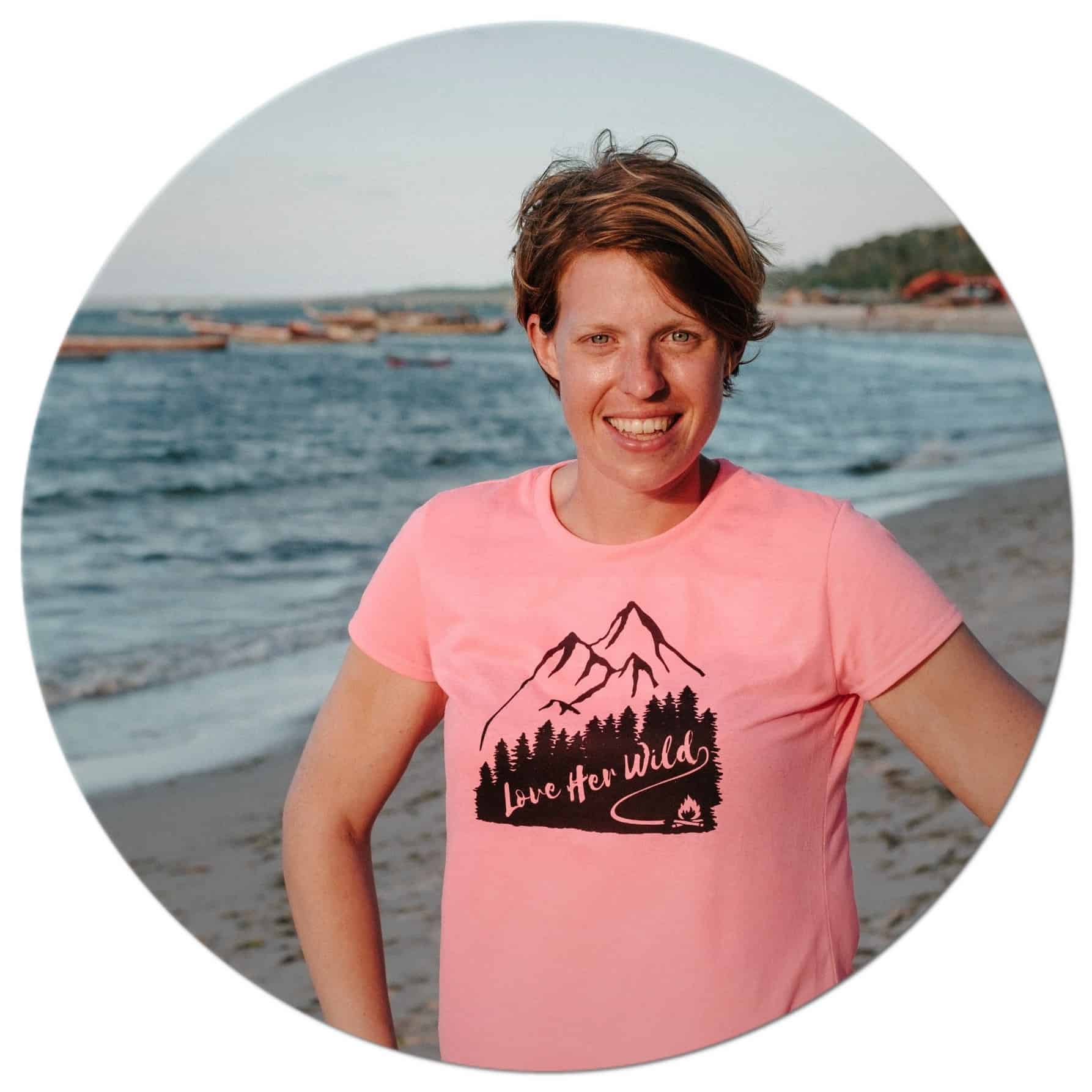
Bex Band founded Love Her Wild. Alongside running the community, she is an author, blogger and speaker on all things adventure and conservation. For her work championing women in the outdoors, she has been nominated for multiple awards and was named one of the UK’s Top 30 inspirational entrepreneurs.
